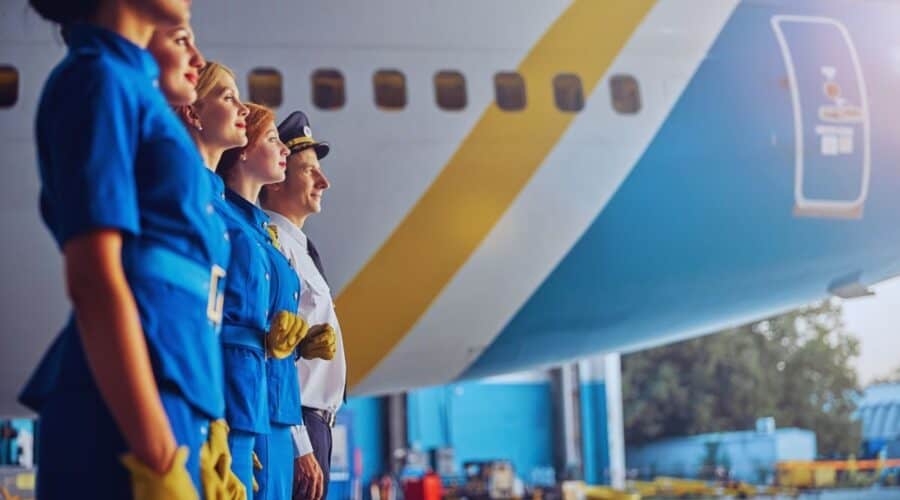Airbus Soars: Delivers 63 Commercial Aircrafts in June 2025
The global aerospace landscape is experiencing a transformative moment, epitomized by Airbus’s remarkable achievement of delivering 63 commercial aircraft in June 2025. This milestone is far more than a simple numerical accomplishment; it represents a nuanced narrative of technological innovation, economic resilience, and strategic vision in the aviation industry.
The Deeper Meaning of Delivery Numbers
At first glance, 63 aircraft might seem like a straightforward statistic. However, a closer examination reveals a complex tapestry of engineering excellence and market dynamics. The delivery composition tells a rich story of aviation’s evolving priorities. The A320neo family dominated with 42 aircraft, representing the continued preference for efficient short to medium-haul solutions that balance operational cost with passenger comfort.
The wide-body segment showed particular strength, with 12 A330neo aircraft and 9 A350 models delivered. These numbers reflect more than market demand; they signal a strategic shift towards more fuel-efficient, environmentally conscious aircraft designs. Each plane represents a carefully orchestrated symphony of advanced materials, cutting-edge propulsion technologies, and sophisticated engineering solutions.
Technological Innovation at the Forefront
Airbus’s delivery performance is intrinsically linked to its commitment to technological advancement. The manufacturer has consistently pushed the boundaries of what’s possible in aerospace engineering. Advanced avionics systems and innovative materials are not just features but fundamental reimaginings of aircraft design.
The integration of sustainable aviation technologies stands out as a particularly compelling narrative. Each aircraft delivered represents a step towards reducing the aviation industry’s carbon footprint. The geared turbofan engines, lightweight composite materials, and advanced aerodynamic designs are testament to Airbus’s commitment to environmental responsibility.
Global Market Dynamics and Competition
The delivery milestone occurs within a complex global aerospace ecosystem. The ongoing rivalry with Boeing continues to drive innovation, pushing both manufacturers to continuously improve efficiency, passenger experience, and operational capabilities. This competition is not just about selling aircraft; it’s about reimagining the future of global transportation.
Economic implications are profound. The 63 aircraft represent an estimated value of $8-10 billion, generating ripple effects across manufacturing, maintenance, and operational sectors. It’s a powerful illustration of aviation’s role as an economic engine, creating jobs and driving technological innovation across multiple industries.
Sustainability: More Than a Buzzword
Sustainability is no longer a peripheral consideration but a core strategic imperative. Each aircraft delivered reflects Airbus’s commitment to reducing environmental impact. The manufacturer has made significant strides in developing more fuel-efficient designs, exploring alternative propulsion technologies, and integrating sustainable aviation fuel solutions.
Looking to the Future
The June 2025 delivery performance provides a glimpse into the future of aviation. Emerging technologies like electric and hybrid propulsion are no longer distant possibilities but near-term realities. The potential of electric aircraft represents a fundamental reimagining of aerospace capabilities, promising reduced emissions and innovative transportation solutions.
Artificial intelligence and autonomous systems are increasingly integrated into aerospace design and operations. These technologies are not replacing human expertise but augmenting it, creating more efficient, safer, and more responsive aviation ecosystems.
Regulatory and Economic Landscape
The delivery milestone occurs within a complex regulatory environment. Increasing environmental regulations, evolving safety standards, and international carbon reduction commitments shape every aspect of aircraft design and manufacturing. Airbus’s performance demonstrates not just technical capability but a profound ability to navigate these intricate global requirements.
A Moment of Transformation
The 63 aircraft delivered in June 2025 are more than metal and engineering. They represent human ingenuity, technological progress, and our collective aspiration to connect the world more efficiently and sustainably. Each aircraft carries within it the dreams of engineers, the hopes of travelers, and the promise of a more connected global community.
Airbus’s achievement is a testament to the aerospace industry’s remarkable adaptability, technological prowess, and continued relevance in a rapidly changing world. It reminds us that innovation is not just about pushing technological boundaries but about creating solutions that improve human experiences and address global challenges.





